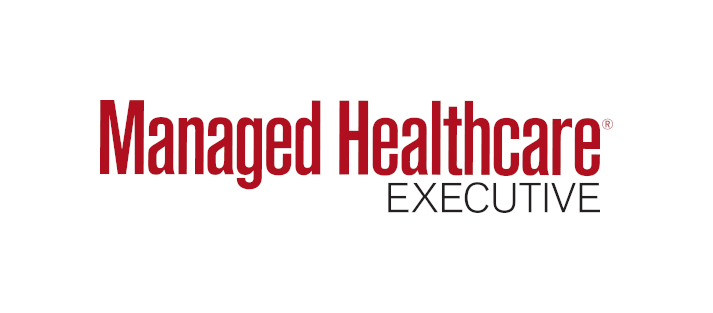Fixing Prior Authorization: How to Improve Outcomes Using Episodic Care Paths
As the industry becomes oriented toward value-based care and its focus on high-value outcomes, utilization management must evolve to address the entire patient care journey, often across multiple episodes of care.
The widespread adoption of utilization management (UM) programs has proven effective both for advancing patient safety and controlling unnecessary medical expense. However, traditional UM remains locked into the legacy practice of managing individual services versus taking an episodic view centered on long-term patient outcomes. As the industry becomes oriented toward value-based care and its focus on high-value outcomes, UM must evolve to address the entire patient care journey, often across multiple episodes of care.
With traditional UM, health plans apply their one-size-fits-all review criteria—which are rarely transparent to the provider—to make case-by-case decisions as to whether a requested service is medically necessary and clinically appropriate. When a physician submits a prior authorization request, the health plan can take up to two weeks to review the case; if additional information is needed, this timeline could be extended. In the meantime, the patient is left waiting to receive care they most likely need. The fact that UM so often functions as a delaying tactic is one of the main reasons physicians maintain a deep distrust of the prior authorization process.
Siloed care management is another inherent challenge of UM. For example, consider a patient with knee pain who is referred to a sports medicine clinic. The physician’s first prior auth request, for an MRI, is routed through one of the plan’s many pre-authorization vendors; a second request, for injections, is processed by the plan’s pharmacy team. If the injections fail, the patient’s orthopedic surgeon may submit a request for a duplicative MRI, plus a separate authorization for the surgery, and potentially a fifth request to obtain approval for postoperative home health or rehabilitation services.
For one episode of care, a patient can easily require five or more prior auth requests—which may be handled individually by disparate vendors and departments whose business objectives are not necessarily aligned. In this siloed environment, health plans have no ability to impact clinical outcomes, as they have no visibility into the end-to-end patient journey.
Anticipating care needs in advance
By taking a more holistic approach to care management, health plans can better anticipate, manage, and approve a patient’s needs across an episode of care. An intelligent authorization platform can use physician input and a wealth of patient data—including claims data, clinical data from the EHR, and historical data sets from CMS—to determine longitudinal patient journeys for a wide range of conditions.
After patients are diagnosed, they can be placed on an evidence-based care path for their condition. As providers enter a CPT code for a particular service, the platform can automatically suggest additional services that might be appropriate for a bundled authorization. The concept of mirroring alternative payment models by bundling authorizations is not new, and was proposed by the eHealth Initiative collaborationa few years ago as a means of reducing the volume and burden of authorization requests.
Consolidating multiple authorizations for a single episode of care benefits both health plans and providers, as it requires much less time and administrative expense. In addition, patients can access the care they need without hesitation, for there is already an approved care plan in place. As every physician knows, streamlining the prior authorization process is critical for maintaining continuity of care, as undue wait times can derail a patient’s progress. According to the American Medical Association, 74% of physicians report that denials or delayed approvals can lead patients to abandon their recommended treatment plan altogether.
Applying patient-specific data
An episode-based approach to care management goes far beyond the mechanism of bundled authorizations. If done correctly, recommended care paths can also take physician preferences, clinical workflow, and patient-specific data into account. For example, a physician requesting approval for a patient’s total knee replacement might be prompted to plan ahead for postoperative rehabilitation: Will the patient require ten outpatient physical therapy sessions, as clinical evidence shows this number works best? Since this specific patient has several risk factors, should they receive home health services based on the physician’s discharge preferences?
By using machine learning models to extract patient-specific data from clinical notes, an intelligent authorization platform can also leverage data locked in unstructured records to suggest relevant services. For example, the platform might recommend that a patient who is a nicotine user enroll in a smoking cessation program prior to spinal surgery. Although the cessation program doesn’t require preauthorization, the patient is likely to experience better outcomes if they are nicotine-free. By developing a much richer, patient-centric health record, health plans can drive better care decisions by surfacing specific programs and care management opportunities for patients as the need arises.
A collaborative approach to prior authorizations can also collect and apply physicians’ treatment preferences at scale. As an example, many physicians operating under value-based contracts might prefer not to discharge joint replacement patients to a costly skilled nursing facility. Health plans can share that preference downstream via an intelligent authorization platform, which can communicate the care plan with the hospital discharge planner in advance, hastening the onset of care. In this way, health plans can move from being the arbiter of care decisions toward a more collaborative role, partnering with providers in the seamless delivery of quality care.
Addressing unexplained variations in care
To deliver the best results—for patients, providers, and health plans alike—a UM program should greenlight physicians’ ability to prescribe evidence-based care. By comparing a patient’s projected care path to the accepted clinical standards, an intelligent authorization platform can enable instant approval of services for the majority of cases, reducing the number of requests which must be manually reviewed.
While most providers are already adhering to best practices, an episodic approach to care management does help health plans identify and monitor outliers. Instead of simply issuing a denial, however, episode-based authorization allows the health plan to help providers whose request deviatesfrom best practices to course-correct in real time.
Offering clinical recommendations at the point of authorization can also directly improve the quality of care, helping health plans to increase conservative care, decrease medically unnecessary surgeries, and ensure a thorough evaluation. For example, if a physician orders an injection for a patient with back pain who does not meet the health plan’s criteria, an intelligent authorization platform will prompt the physician to order an MRI instead. After the diagnostic work is complete, the provider can then move forward with an authorization for the injection—which might well be for a different therapy, based on the results of the MRI.
Over time, health plans can begin to interrogate accumulated clinical data on a particular condition to optimize patient care paths. By relying on an intelligent authorization platform to analyze claims, medication, and clinical data, plans can identify patterns and correlations between specific care trajectories and patient outcomes. The application of machine learning to both individual and population health data can result in the continual optimization of care paths to drive better results.
Episode-based care management supports the shift to value-based care, even for health plans and providers who are not currently in value-based contracts. When health plans can access a more holistic, contextualized view of the entire patient journey, they are better able to reduce duplicative services, facilitate proactive care management, and address inappropriate variations of care. By promoting the right clinical care for patients at the optimal time and place, health plans are better positioned to improve the value of care while reducing its cost.


